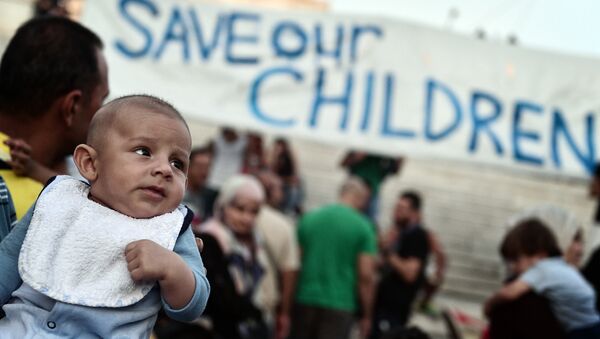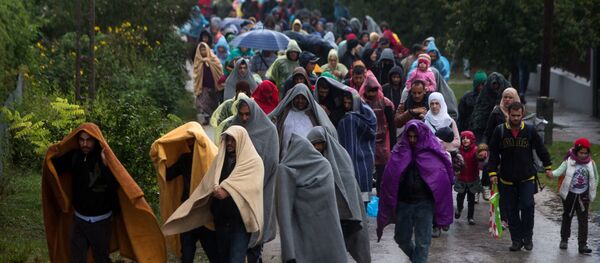In July 2015, the European Council agreed "to the relocation of 40,000 persons in clear need of international protection, which will run over two years, from the frontline member states Italy and Greece". Then, In September 2015, it once again agreed "to relocate 120,000 people in clear need of international protection to other EU member states."
However, one year on, only 4,740 of them have actually been relocated because of disagreements within the EU over the relocation plans, with many — particularly in Eastern Europe — refusing to take in mass number of migrants amid rising Islamophobia.
Rats
A new report from Human Rights Watch (HRW) has found that Greek police routinely lock up unaccompanied children in small, overcrowded, and unhygienic cells for weeks and months.
Greece: Migrant Children Held in Deplorable Conditions https://t.co/3FvsBNbIpI
— Human Rights Watch (@hrw) September 9, 2016
The report, "Why Are You Keeping Me Here?: Unaccompanied Children Detained in Greece," is based on interviews with 42 children who were or had been detained, as well as visits to two police stations and two detention centers in mainland Greece.
Greece has a chronic shortage of space and detains children in so-called protective custody while they await space in the overburdened shelter system. Greek law says unaccompanied children may be detained for 25 days pending transfer to a shelter, and for up to 45 days in very limited cases.
Human Rights Watch found that children were often detained for longer than these already excessive periods, with an average stay of 40 days. A 16-year-old boy from Afghanistan who had been in police custody for 52 days, said:
"The situation is very bad…I feel alone here, far from my family, from my friends… I need to get out of this hell."
And a 15-year-old Algerian boy detained at the Amygdaleza detention center told HRW:
"I swear to God, I sleep next to rats."
#Greece should end the unjustified detention of unaccompanied migrant kids. New @hrw report: https://t.co/mBX4Rl5cJG pic.twitter.com/rxmZbHJPED
— Wenzel Michalski (@WenzelMichalski) September 9, 2016
Many had fled violence and armed conflict, including in Syria, Afghanistan, and Iraq. A 16-year-old Kurdish boy from Iraq who was locked in a police cell, said he fled after Daesh ighters (also known as ISIL) captured his hometown of Mosul and executed his father. The children traveled on their own to Europe or became separated from their families in transit.
The HRW report said: "Greece's failure to provide accommodation for unaccompanied migrant children is a chronic problem. Greek authorities have acknowledged the issue, but done far too little to effectively address the lack of accommodation."



